-
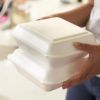 +3 +1
+3 +1Maine becomes the first state to ban Styrofoam
Food containers made of Styrofoam, also known as polystyrene, will be officially banned from businesses in Maine after governor Janet Mills signed a bill into law Tuesday. The law, which will go into effect January 1, 2021, prohibits restaurants, caterers, coffee shops and grocery stores from using the to-go foam containers because they cannot be recycled in Maine.
-
 +12 +1
+12 +1There’s just no getting away from microplastic contamination
Microplastics may be having a moment in the spotlight, as the public is increasingly aware of their presence in the environment around us. But as more evidence of their presence comes to light, it’s becoming clearer that we don’t yet have a handle on how big or bad the problem is. A huge amount of small plastic particles end up in the sea, but recent research has also found them in lakes and mountain river floodplains, and even as airborne pollution in megacities.
-
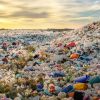 +27 +1
+27 +1Cities and countries aim to slash plastic waste within a decade
If all goes well, 2030 will be quite a special year. Global and local community leaders from more than 170 countries have pledged to “significantly reduce” the amount of single-use plastic products by 2030. Success would result in significantly less plastic pollution entering our oceans, lakes and rivers. Today, societies around the world have a love affair with disposable plastics. Just like some love stories, this one has an unhappy ending that results in plastic bags, straws and takeout containers strewn about the global environment.
-
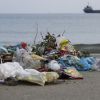 +14 +1
+14 +1Study: Tiny plastic pieces are now being detected in the air
In the past decade, plastics have been found in the ocean's deepest and most remote points, collecting in massive, dense clumps, and clogging the stomachs of marine life washed up onto shorelines. What's new: Tiny plastic pieces from broken down bags and packaging are now being detected in another element: the air. These microplastics are being deposited onto an isolated, pristine site in the French Pyrenees at an altitude of about 4,600 feet, per a new study. There's also been a sharp uptick in plastic pollution in the ocean since the late 1950s, according to another study published this week.
-
 +15 +1
+15 +1Food Waste Is a Major Problem. Confusing Date Labels Are Making It Worse.
Rummaging through your refrigerator, you come across a jar of mayonnaise labeled “BEST IF USED BY 06/10/19.” If it’s mid-July, are you risking illness by slathering it on your sandwich and eating it? It’s hard to say. Massachusetts and New Jersey are considering measures to clear up the confusion, following a California law that went into effect earlier this year. Several other states also are looking at labeling bills, as anti-food waste groups advocate for clearer signs to indicate when food is okay to eat, even if it’s not the freshest.
-
 +19 +1
+19 +1No plastic bottles, utensils or cups? That’s what some lawmakers are proposing
Plastic bags are out. Plastic straws are on their way out. Now Hawaii lawmakers want to take things a big step further. They’re considering an outright ban on all sorts of single-use plastics common in the food and beverage industry, from plastic bottles to plastic utensils to plastic containers. Senate Bill 522 has already passed through two committees and is on its way to two more.
-
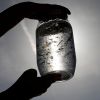 +18 +1
+18 +1EU proposes ban on 90% of microplastic pollutants
A wide-ranging ban on microplastics covering about 90% of pollutants has been proposed by the EU in an attempt to cut 400,000 tonnes of plastic pollution in 20 years. Every year, Europe releases a bulk amount of microplastics six times bigger than the “Great Pacific garbage patch” into the environment – the equivalent of 10bn plastic bottles. The phasing out proposed by the European Chemicals Agency (Echa) would remove 36,000 tonnes a year of “intentionally added” microplastic fibres and fragments, starting in 2020.
-
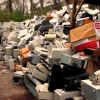 +11 +1
+11 +1Electronics Are 'the Fastest-Growing Waste Stream in the World’
Electronic waste is a growing threat to the environment. Thanks to the low cost of manufacturing, it’s easier than ever for corporations to pump out millions of laptops, smart phones, internet of things devices, and other electronics. Electronics companies want consumers to keep buying new products, and believe repair and reuse hurts their bottom line. Old CRT monitors and televisions fill warehouses across the country, and companies like Apple and Microsoft pay lip service to the problem, but often pursue business practices that make the problem worse.
-
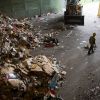 +3 +1
+3 +1The Era Of Easy Recycling May Be Coming To An End
For those of us who spent most of our lives painstakingly separating plastic, glass, paper and metal, single-stream recycling is easy to love. No longer must we…
-
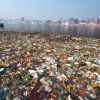 +13 +1
+13 +1The Cost of Plastic Convenience #NoPlasticJuly
July signifies the beginning of environmental campaigns heavily focused on the issues of plastic output. Devised as a mechanism to shed much-needed light on the direness of plastic pollution, #NoPlasticJuly engages social media users and pushes the issue in front of the unaware. A key driver for #NoPlasticJuly is prompting people to share their own plastic reductions. But, this has transgressed the intended direction of the month and become a show in greenwashing and a PR move.
-
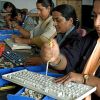 +3 +1
+3 +1Thailand moves to ban importing e-waste and plastic
In a bid to stop stockpiling garbage in Thailand, the government plans to ban imports of plastic and electronic waste. The environment minister has called on the Thai recycling industry to use domestic scrap first.
-
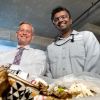 +21 +1
+21 +1How one Canadian food court eliminated 117 bags of garbage a day
The food court at Yorkdale Shopping Centre in Toronto used to generate 120 bags of garbage a day. Now it produces just three — despite the fact that it serves noodles, fried chicken, burgers and other fast foods to 24,000 customers a day. "It actually just goes to show the type of waste that is here in the food collection or after you finish your meal — how much of that is actual garbage," said Claire Santamaria, the mall's general manager.
-
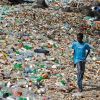 +10 +1
+10 +1Researchers race to make bioplastics from straw and food waste
New bioplastics are being made in laboratories from straw, wood chips and food waste, with researchers aiming to replace oil as the source of the world’s plastic. The new approaches include genetically modifying bacteria to eat wood and produce useful chemicals. But the bioplastics are currently significantly more expensive to make than fossil fuel-based plastics. Land and seas around the world, from high mountains to deep oceans, have become polluted with plastic, prompting major public concern. The world has produced 8bn tonnes of plastic since the 1950s and demand is still rising.
-
 +13 +1
+13 +1Amphibious Vehicles Are the Military’s Latest Tax Dollar Sinkhole
Forty-six years and billions later, they are back where they started. By Jeff Groom.
-
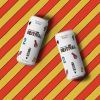 +16 +1
+16 +1These festivals will only sell water in cans this year to reduce plastic use
Bestival, and it’s family-friendly sister festival Camp Bestival, have confirmed that water will only be available in cans at this year’s events. As members of the Association of Independent Festivals, the two events at Lulworth Castle are pledged to eliminate all single-use plastic by 2021. The ban stretches as far as glitter and cable ties, so it’s no surprise to see festivals start tackling plastic bottles this summer.
-
 +1 +1
+1 +1Acquisition Insanity: USS Ford Block-Buy Proposal
Navy leaders want Congress to commit billions of taxpayer dollars for two new aircraft carriers but no one can say that the design actually works. By Dan Grazier.
-
 +2 +1
+2 +1The U.S. Navy Wants to Spend Billions on Aircraft Carriers That Aren’t Ready
The U.S. Navy wants to go all in on the USS Ford-class aircraft carrier program. Less than a year after the first-in-class ship’s commissioning — before it ever launched or recovered an aircraft, a first in history — the sea service is exploring options to buy similar vessels in bulk.... By Dan Grazier.
-
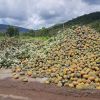 +26 +1
+26 +1100 tonnes of Australian pineapples have been left to rot because American company wanted cheaper imports
Nearly 100 tonnes of pineapples are currently rotting in Australian fields due to a disagreement between Queensland farmers and a multinational producer. Pineapple growers NQ Paradise Pines posted a picture of the shocking waste to their Facebook page. The image has since been shared over 20,000 times by concerned Australians.
-
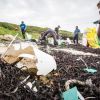 +1 +1
+1 +1'Shocking' rise in rubbish washing up on UK beaches
The rubbish washing up on the UK’s beaches is continuing to increase, rising by 10% in 2017, the Marine Conservation Society’s (MCS) annual beach clean has revealed. Much of the waste is plastic, leading the MCS to call on the government to urgently introduce a charge on single-use plastic items, such as straws, cups and cutlery. The chancellor, Philip Hammond, recently announced the government is considering such action.
-
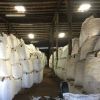 +19 +1
+19 +1Recycling being stockpiled and dumped in landfill as glass market crashes
One recycling company is going public to raise awareness about the issues being faced by industry due to what it describes as a failure of regulation.
Submit a link
Start a discussion




















